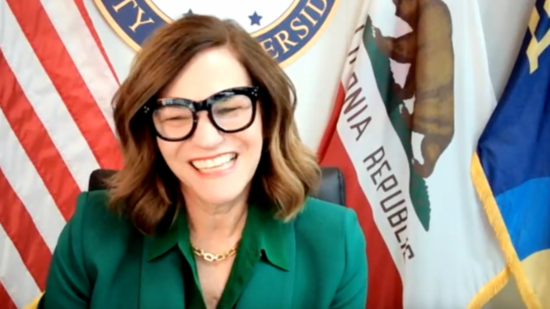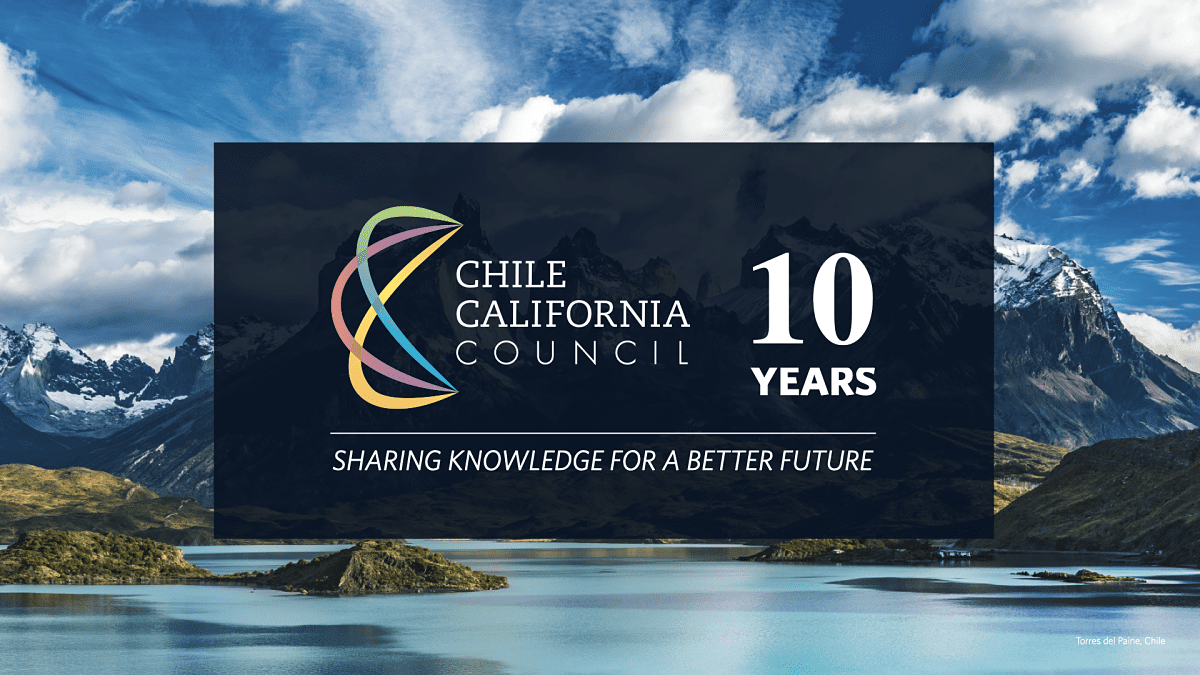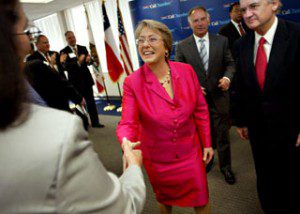UC Riverside realiza misión virtual para emprendedores chilenos
Un ecosistema empresarial en crecimiento, una ciudad acogedora y programas sólidos para ayudarlos a tener éxito son algunas de las conclusiones para los innovadores visitantes.
La pandemia de Covid-19 no ha impedido que el equipo de la Oficina de Asociaciones Tecnológicas de UC Riverside (UCR) traiga a empresarios internacionales a Riverside para mostrar el ecosistema de la región y ayudarlos a ingresar al mercado estadounidense. El equipo de la UCR organizó recientemente una misión virtual para 23 nuevas empresas chilenas en diversas industrias, incluidas la salud, la agricultura, los productos del mar, las tecnologías limpias, la respuesta a emergencias y la seguridad.


La misión fue parte de Startup Ciencia, programa del Ministerio de Ciencia de Chile coordinado a través de los Nodos de Transferencia Tecnológica del país: Know Hub Chile, HUB APTA y Hubtec; y Endeavour Chile, que reunió a algunas de las startups más prometedoras del país con el objetivo de acelerar su comercialización.
Los innovadores chilenos pasaron dos días aprendiendo sobre el ecosistema emprendedor de Riverside compuesto por dos incubadoras, instalaciones de prueba de tecnología limpia y de investigación líderes en el mundo, recursos de tutoría que incluyen un equipo de más de 15 emprendedores en residencia expertos en comercialización de tecnología y emprendimiento a través del SPIC SBDC de la UCR. , así como multitud de programas de formación y apoyo, y acceso a financiación, entre otros. Lo más valioso es el compromiso con el éxito empresarial por parte del gobierno local y las instituciones educativas.
La alcaldesa de Riverside, Patricia Lock Dawson, así como Rosibel Ochoa, Vicecanciller Asociada de Alianzas Tecnológicas de la UCR, se unieron al evento para dar la bienvenida y apoyar a los empresarios visitantes. Asimismo, se sumó al evento el Comisionado Comercial de ProChile del Ministerio de Relaciones Exteriores de Chile y un representante del Consejo Chile-California. “Hay tecnologías muy innovadoras en América Latina, los emprendedores chilenos mostraron soluciones valiosas que esperamos incubar y hacer crecer en Riverside”, dijo Ochoa, y agregó: “Las innovaciones internacionales son parte del portafolio de tecnologías que nos ayudarán a dar forma al Inland Empire. región.»
“A menudo digo, cuando eliges a Riverside, ¡Riverside te elige a ti! Nuestra ciudad alberga muchos recursos y oportunidades emocionantes, todas orientadas a garantizar que los emprendedores alcancen el éxito. Mi administración está lista para dar la bienvenida a nuevas industrias y empresas innovadoras que desafían el statu quo”, dijo el alcalde Lock Dawson.
Los equipos recibieron entrenamiento durante la visita virtual. Participaron en un taller para aprender sobre la toma de decisiones de inversionistas ofrecido por un experto de la UCR con 300 años de experiencia en capital de riesgo. Aprendieron sobre la creación de una empresa en Estados Unidos y el proceso para ser incubada en Riverside por la UCR. Un experto en subvenciones gubernamentales respondió preguntas sobre los pasos para obtener financiamiento SBIR/STTR una vez que se establecen en los EE. UU. Por último, los equipos tuvieron la oportunidad de practicar su discurso de inversionistas con expertos de UCR en comercialización de tecnología y espíritu empresarial, lo que los ayudó a prepararse para el evento culminante, una presentación de discurso frente a un panel de inversores ángeles y de capital de riesgo de California.
José Miguel Figueroa, Fundador de Innovai, una startup participante con una tecnología que extiende naturalmente la vida útil de pescados y mariscos, comentó “durante la misión recibimos excelentes comentarios de inversionistas, profesores y conocimos los instrumentos disponibles para ayudar a las startups internacionales a obtener al mercado estadounidense. Particularmente valioso fue aprender cómo piensan los inversores y cómo toman decisiones de inversión. Esperamos ser incubados en Riverside”.
Las innovaciones de los emprendedores chilenos incluyeron una gama de tecnologías, desde la detección y prevención de incendios forestales, pasando por un hidrogel para la regeneración de tejido celular hasta una solución para imitar la luz solar para mejorar el desarrollo de los cultivos.
Medio: UC RIVERSIDE






